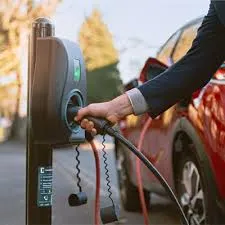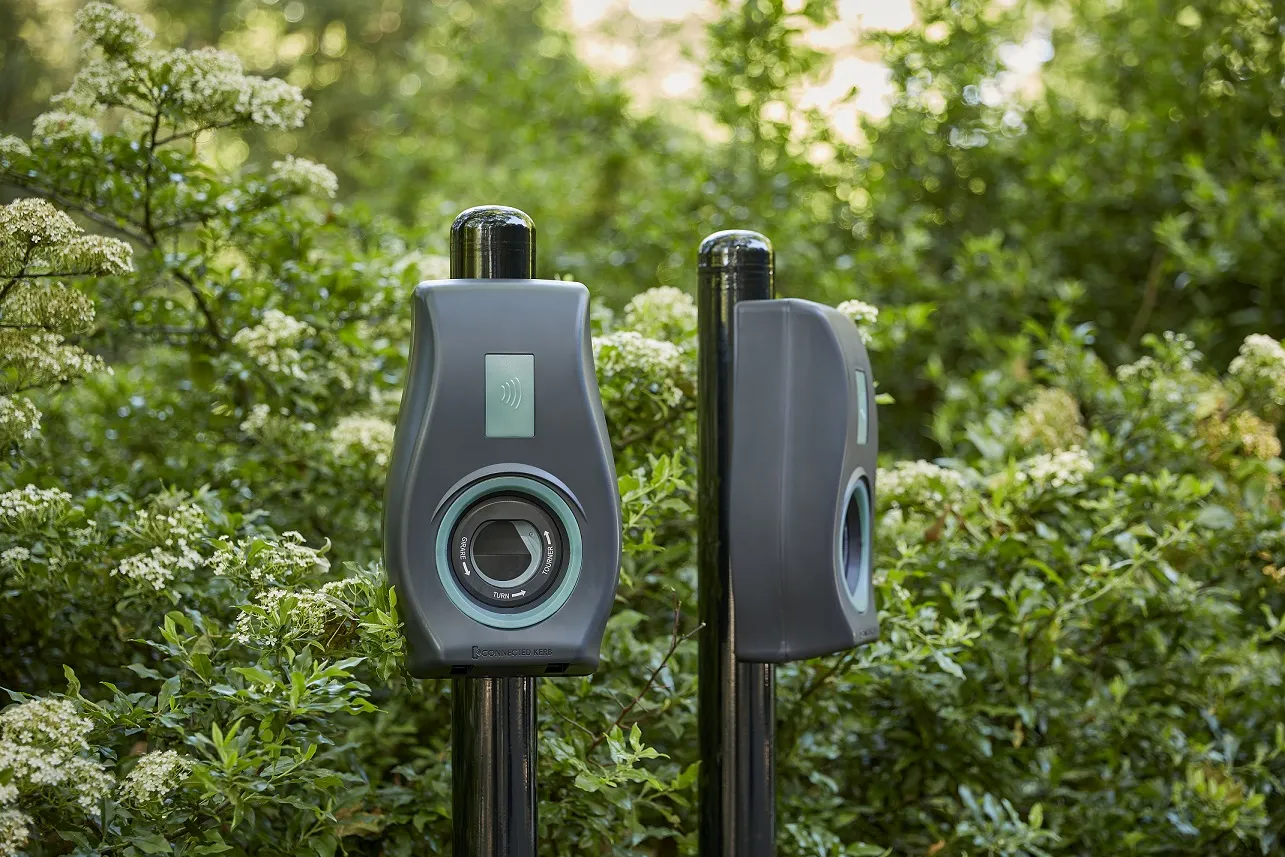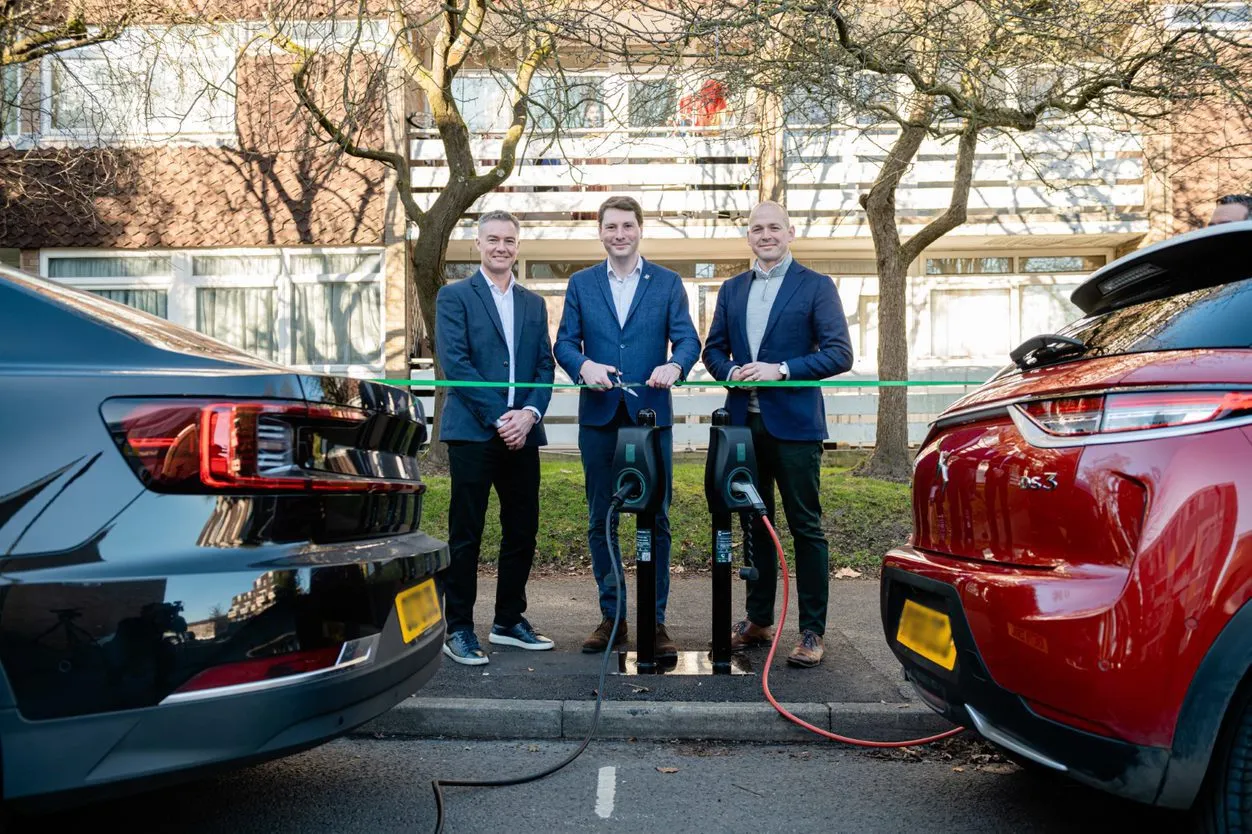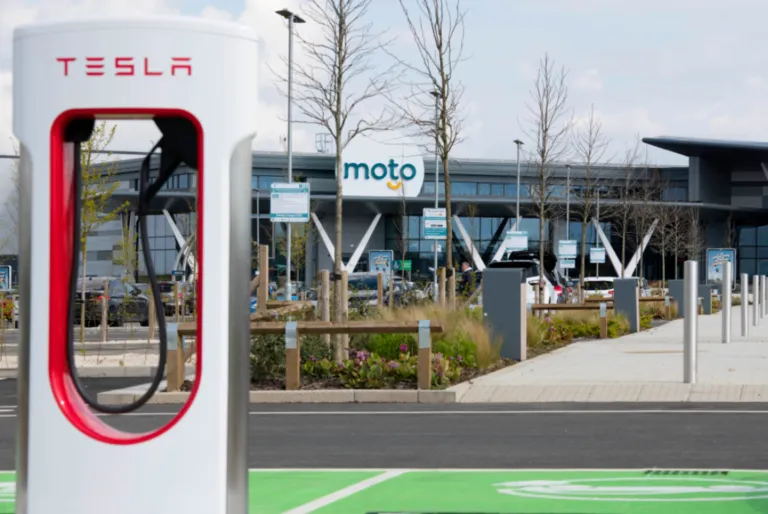
The National Wealth Fund (NWF) has joined forces with Aviva Investors to back Connected Kerb's ambitious plans to expand its UK EV charging network towards 40,000 sockets, up from the 9,000 already built at the end of 2024.
Connected Kerb says the £65m equity investment will support its plans of expanding the UK's on-street EV charging network. The fundraise sees NWF commit a £55m ordinary equity investment alongside a further £10m ordinary equity investment from Aviva Investors, the global asset management business of Aviva plc.
This substantial investment into the UK’s public charging infrastructure is critical for delivering the forecast requirement of at least 300,000 public EV chargers by 2030.
Chris Pateman-Jones, Connected Kerb CEO, said: "This investment combines Connected Kerb’s proven hardware and advanced software infrastructure with the financial resources of NWF and Aviva to deploy public charging at scale, to all corners of the UK. This is a game-changing investment that will give individuals and businesses the confidence to make the switch to driving electric, dramatically reducing carbon emissions and air pollution. We are delighted to have such high profile investors who are deeply aligned with our sustainability and ethical goals.”
John Flint, National Wealth Fund CEO, said: “To get to net zero we need to make it as easy as possible for people to change the way they do things. Providing convenient and reliable on-street charging is key to helping those without driveways make the switch to electric vehicles. Our investment in Connected Kerb will support one of the UK’s leading public charge point operators to continue its network expansion and deploy this much-needed EV charging infrastructure at pace and at scale to homes and businesses across the country.”
Angenika Kunne, Head of Infrastructure Equity, Aviva Investors, commented: “We are pleased to extend our relationship with Connected Kerb and to back its continued growth plans. This is an ambitious company which we believe is leading the way in helping the UK get ready for the future and supporting the transition towards a low-carbon economy. With plans to roll-out an extensive EV charging network , it is well-positioned to create infrastructure which can support the adoption of electric vehicles for the mass market. The unique offer of Connected Kerb’s advanced site selection and user software provides a compelling proposition for both Aviva Investors clients and the end user.”
EV ownership continues to rise fast with over 30% of new UK vehicles sold last December being pure battery EVs. However, there's a growing gap between EV ownership where drivers can charge their vehicle on their own driveway or garages and where they cannot, as is the case in 55% of dwellings in urban areas. By boosting public charging infrastructure, Connected Kerb says its public/private partnership model, enabled by NWF and Aviva Investors, is rebalancing this inequality. The company's chargers are manufactured in the UK, supporting the government's drive for green job creation.
Connected Kerb adds that it is on course to become the largest network of public chargers in the UK in 2025, having jumped from 6th to 2nd position### in the last 2 years.
Ken McMeikan, CEO of Moto, the UK’s largest motorway services operator and a major charging point operator, commented on the investment: “Today's National Wealth Fund investment in Connected Kerb and the Chancellor’s commitments to reforming planning policy are promising signals of Government support for the electric vehicle transition and ensuring the infrastructure is in place to give motorists the choice of an EV.
“As the Chancellor said, some of the planning limitations are ridiculous, and whilst the Planning and Infrastructure Bill and reviewing the Green Book may address some of this, the devil is in the detail. We'd like to continue to work with Government to ensure that detail does indeed address the challenges we face in getting planning approval for our planned charging infrastructure and getting the power where we need it.”









